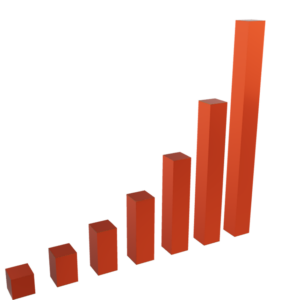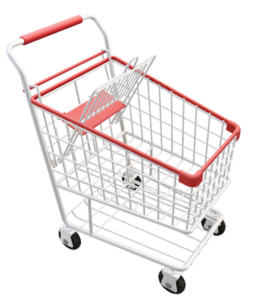The consumer discretionary sector is one of my favorite sectors for growth. Companies in this sector make goods that are fun to have but not essential, hence they follow economic cycles and consumers’ sentiment. This “all-you-fit-in” sector is also called consumer cyclical in financial literature.
Discretionary spending is all the expenses you incur after you have covered the basics, and you have extra money. When the economy booms, consumer discretionary stocks follow. Note that Amazon (AMZN) is no longer a technology stock because it’s really in the retail space; it’s now included in the consumer discretionary sector.
Missed last week’s article about the healthcare sector? No worries, get it here.
Industries in the consumer discretionary sector
This sector is very diversified, i.e., it includes companies that are vastly different from one another. From having a coffee at Starbucks to replacing your kitchen sink, from buying shoes to spending an evening at a casino, from getting a new bumper to buying a newly built house, these are all examples of discretionary spending.
The sector is divided in the following industries, also called sub-sectors.
| Apparel Manufacturing | Gambling |
| Recreational Vehicles | Apparel Retail |
| Home Improvement Retail | Residential Construction |
| Auto & Truck Dealerships | Internet Retail |
| Resorts & Casinos | Auto Manufacturers |
| Leisure | Restaurants |
| Auto-Parts | Lodging |
| Specialty Retail | Department Stores |
| Luxury Goods | Textile Manufacturing |
| Footwear & Accessories | Packaging & Containers |
| Travel Services | Furnishings, Fixtures & Appliances |
| Personal Services |
Don’t miss anything! Get the latest delivered weekly by subscribing to our newsletter, right here.
Greatest strengths
This is one of my favorite sectors when I want to secure growth stocks. It’s unique in that you can devote over 20% of your portfolio and still maintain wide diversification. The buying process for a new car isn’t the same as for a burger or a T-shirt.
Some companies in this sector can be surprisingly recession resistant too; think about McDonald’s with its value meals, for example. You can select great companies from several consumer discretionary industries and build a solid portfolio.
My portfolio includes around 10-12% of consumer discretionary stocks, from home renovation (Home Depot), auto parts (Magna), restaurants (Starbucks), to internet retail (Amazon). Just remember to not fall in love with a single sub-sector.
 Some of these industries have amazing dividend growers. The key for these companies is to build a strong brand that serves them well over time. Brands like Nike, Home Depot, McDonald’s, and Starbucks in the U.S. and Ski-Doo, Tim Horton’s, Dollarama, and Canadian Tires in Canada are iconic brands. While such companies do better when the economy booms, they are also resilient during recessions. The cyclical aspect of this sector can also propel your returns if you buy during economic downturns.
Some of these industries have amazing dividend growers. The key for these companies is to build a strong brand that serves them well over time. Brands like Nike, Home Depot, McDonald’s, and Starbucks in the U.S. and Ski-Doo, Tim Horton’s, Dollarama, and Canadian Tires in Canada are iconic brands. While such companies do better when the economy booms, they are also resilient during recessions. The cyclical aspect of this sector can also propel your returns if you buy during economic downturns.
Greatest weaknesses
Unfortunately, while consumer discretionary companies can show double-digit growth during good years, the winds can change quickly. Inflation has forced central banks to increase rates in 2022 and 2023. We all hope for a “smooth landing”, but chances are we will get into a recession. This will have a direct impact on consumers’ budgets and, obviously, on consumer discretionary purchases. Companies’ margins will get squeezed by inflation and labor shortages while consumers will work with restricted budgets.
2024 will be a tough year for this sector. This is what I like to call “looking good on Prom night”. When people have jobs and feel confident about their future, there’s virtually no limit to growth. You’ll see impressive sales increases for years in a row giving you the impression that it’ll last forever.
Nothing lasts forever. A perfect example is what happened to VF Corporation, a legendary brand manager; it eventually failed its shareholders in early 2023 cutting its dividend after 50 years of consecutive increases. Did we say “cyclical”?
 E-commerce has been a great disruptor to this sector’s retailers, many of them going bust, which is a continuing trend. Direct-to-consumer (DTC) sales, e.g., Nike selling you shoes directly through your computer or phone, have become a vital element of their business model. Retailers who resist will fail. Brick & mortar retail isn’t dead, but it must expand into the digital sales space for overall company success.
E-commerce has been a great disruptor to this sector’s retailers, many of them going bust, which is a continuing trend. Direct-to-consumer (DTC) sales, e.g., Nike selling you shoes directly through your computer or phone, have become a vital element of their business model. Retailers who resist will fail. Brick & mortar retail isn’t dead, but it must expand into the digital sales space for overall company success.
How to get the best of it
While you must not get blinded by it, a strong brand is probably the first thing you should look for when selecting consumer discretionary stocks. When you have extra money, you want to treat yourself. Chances are you’ll feel a lot better with a pair of Nike shoes than some “Mikeymike brand” shoes at the discount outlet. Quality matters even more when we talk about the extra dollar. This is where the margin expansion lives: perceived value brings pricing power. How do you think Starbucks can make you smile after you spent $7 on a coffee that probably cost $0.50 to make?
Following economic trends will tell you a great deal about how consumer discretionary industries will perform. Unemployment rates, consumer sentiment indices, and job stats help you to be on top of things.
Don’t miss anything! Get the latest delivered weekly by subscribing to our newsletter, right here.
Who should invest in it?
Most industries in this sector fit very well with the goals of growth investors. Income-seeking investors might allocate 3% to 10% of their portfolio to this sector, due to the lack of generous yields. Growth investors can load up their portfolio with a 10% to 20% weighting in this sector.
Some of my favorite picks in this sector are:
- U.S.: Starbucks (SBUX), McDonald’s (MCD), Home Depot (HD), Genuine Parts (GPC), Nike (NKE).
- Canada: Canadian Tire (CTC.A.TO), Dollarama (DOL.TO), Magna Intl (MG.TO/MGA), BRP (DOO.TO/DOOO).


Leave a Reply